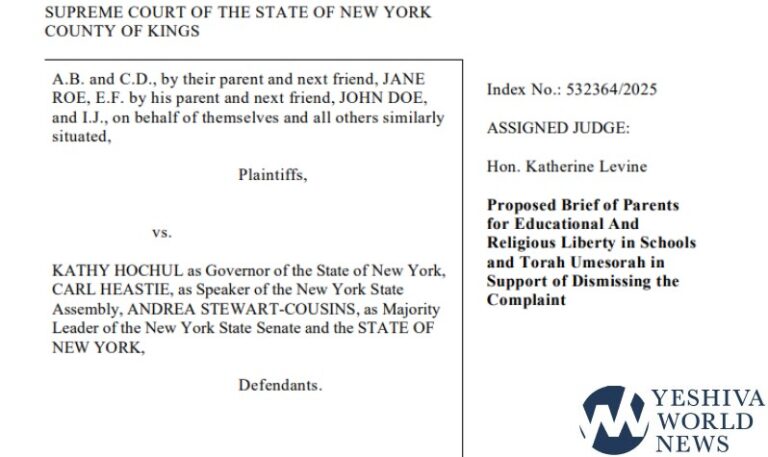Senate Republicans expected on Wednesday to reject an effort to begin debate on a bipartisan infrastructure deal that senators brokered with President Joe Biden, though supporters are hoping they’ll get another chance in coming days.
Democratic Senate Majority Leader Chuck Schumer scheduled a procedural vote that he described as a step to ”get the ball rolling” as talks progress. But Republican senators say they want to view an analysis of the bill’s costs, how it’s paid for and a more detailed legislative text first.
The measure is projected to cost about $1 trillion over five years with about $579 billion of that above previously expected levels.
“We’ve told him we’re not ready, so we’re gonna vote no, but we will be ready by the end of this week. And we’ve always thought that,” said Sen. Rob Portman, R-Ohio, a lead negotiator, during an interview on CNBC. “We still have four or five issues we’re discussing with the White House and negotiating with our Democratic colleagues.”
Lawmakers are asking Schumer to delay the vote until Monday, or hold a do-over. But with Democrats anxious to follow up with a $3.5 trillion bill focused on health care, climate and social programs, it’s unclear how events will unfold.
Schumer said senators are in the fourth week of negotiations after reaching agreement on a broad framework for infrastructure spending with the White House. He said that the vote is not meant to be a deadline for having every detail worked out.
“My colleagues are well aware that we often agree to move forward with debates on issues before we have the text in hand,” Schumer said. “We’ve done it twice this year already.”
Republican leader Mitch McConnell of Kentucky called the vote a “stunt” that would fail, but emphasized senators were “still negotiating in good faith across the aisle.”
“Around here, we typically write the bills before we vote on them,” he said.
Six months after Biden took office, his signature “Build Back Better” campaign promise is at a key moment that will test his hopes for a new era of bipartisan cooperation in Washington.
White House aides and the bipartisan group of senators have huddled privately since Sunday trying to wrap up the deal, which would be a first phase of an eventual $4 trillion-plus package of domestic outlays — not just for roads and bridges, but foundations of everyday life including child care, family tax breaks, education and an expansion of Medicare for seniors.
Biden calls it a “blue-collar blueprint for building an American economy back.” He asserted Tuesday that Americans are overwhelmingly in support of his plan and “that’s the part that a lot of our friends on the other team kind of miss.”
However, McConnell has said big spending is “the last thing American families need.”
A core group of Republicans are interested in pursuing a more modest package of traditional highway and public works projects, about $600 billion in new funds, and say they just need more time to negotiate with their Democratic colleagues and the White House.
Senators from the bipartisan group emerged upbeat Tuesday from another late-night negotiating session with Biden aides at the Capitol, saying a deal was within reach and a failed vote Wednesday would not be the end of the road.
Republican Sen. Bill Cassidy of Louisiana said the test vote Wednesday could be useful in helping to “advance and expedite” the process.
“We are so close,” said Democratic Sen. Jon Tester of Montana.
Biden has been in touch with both Democrats and Republicans for several days, and his outreach will continue “until he has both pieces of legislation on his desk to sign them into law,” White House Press Secretary Jen Psaki said Tuesday.
While Biden proposes paying for his proposals with a tax hike on corporations and wealthy Americans who earn more than $400,000 a year, the bipartisan group has been working almost around the clock to figure out a compromise way to pay for its package, having dashed ideas for boosting the gas tax drivers pay at the pump or strengthening the Internal Revenue Service to go after tax scofflaws.
Instead, senators in the bipartisan group were considering rolling back a Trump-era rule on pharmaceutical rebates that could bring in some $170 billion to be used for infrastructure. They were also still haggling over public transit funds.
Ten Republicans would be needed in the evenly split Senate to join all 50 Democrats in reaching the 60-vote threshold required to advance the bill past a filibuster to formal consideration. Schumer can set another vote to proceed to the bill later.
Many Republicans are wary of moving ahead with the first, relatively slim package, fearing it will pave the way for the broader $3.5 trillion effort Democrats are preparing to pass on their own under special budget rules that only require 51 votes. Vice President Kamala Harris can break a tie.
Meanwhile, House Speaker Nancy Pelosi has been working to keep restless liberal Democrats in her chamber in line, as rank-and-file lawmakers grow impatient with the sluggish Senate pace.
“Time’s a-wasting, I want to get this work done,” Rep. Pramila Jayapal, D-Wash., the chairwoman of the Congressional Progressive Caucus, told reporters Tuesday.
Rep. Peter DeFazio, D-Ore., the chairman of the House Transportation and Infrastructure Committee, dismissed the Senate’s bipartisan effort as inadequate. He wants more robust spending on the transportation elements and said, “We want an opportunity to actually negotiate.”
Democrats hope to show progress on that bill before lawmakers leave Washington for their recess in August.
(AP)











